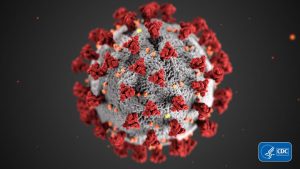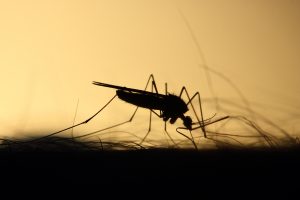Can mosquitoes spread the Coronavirus (COVID-19)?
Mosquitoes can transmit terrible diseases to people and animals. Dengue, West Nile, Malaria, and Zika are only a few examples and is why mosquitoes are regarded as the most dangerous animal on earth. Unfortunately, 2020 is facing a serious epidemic: COVID-19, also known as Coronavirus. In this article, we will explore if mosquito to human transmission of coronavirus is possible given what is currently known.
While there have yet to be specific studies to see if COVID-19 can be transmitted to humans via mosquitoes, it is highly unlikely, if not impossible. There have also been ZERO confirmed cases of such transmission. The CDC currently lists the following as modes of transmission for coronavirus:
- Person-to-person: This is currently the most common route of transmission for coronavirus. Being very close to someone who is infected can result in transmission. The CDC defines close proximity for coronavirus to be within 6 feet. However, the likelihood of transmission increases if an infected person sneezes or coughs near you. There is a high possibility of catching COVID-19 if any infected droplets containing the virus come in contact with your mouth, nose, or other mucous membranes.
- Infected objects or surfaces-to-person: This is suspected to be another route of transmission for COVID-19. Theoretically if someone sneezes or coughs on a surface and another person touches that surface and touches their face, for example, there is a possibility of transmission.
As the premier pest control company in Dallas, TX, Eco-Safe is often asked questions about insects and dangers that can be associated with them. A question we have been asked numerous times already is:
Can mosquitoes transmit Coronavirus?

There is much more research necessary to be completed before the scientific and medical communities will fully understand this virus and be able to answer all questions about it conclusively and accurately. However, with the information at hand, it seems highly unlikely and most likely impossible for mosquitoes to be able to transmit the Coronavirus for the same reasons why mosquitoes are unable to transmit the flu to people. [The image to the right is Coronavirus. This image was created at the Centers for Disease Control and Prevention (CDC).]
Malaria, West Nile Virus and the Zika Virus, for example, all require both an insect and a vertebrate to properly complete their life cycles as a virus. This requirement evolved over time and sometimes requires even further specific conditions such as the genus of the mosquito. While Malaria is caused by a single celled protozoa, some mosquito-borne illnesses that impact humans are known to be caused by Arboviruses or Arthropod-Borne Viruses.
Arboviruses can infect cells in both vertebrates (like humans) as well as insects (like mosquitoes). In order to infect a host, viruses utilize receptors in cells to attach to a host. If a cell does not have the right receptor, the virus is unable to attach and thus, cannot infect a host. There are receptors open to these viruses in both humans and insects. When a virus meets a host cell with the proper receptor, the virus will have the ability to insert its genetic material into that cell and take over the function of the cell. Once a host cell is infected, the virus can start to replicate and spread.
Can someone get Coronavirus from a mosquito bite?
As of now, no. While more is learned about coronavirus every day, current information suggests that like influenza, the 2019 Novel Coronavirus is not able to recognize insect-cell receptors. Thus, with what is currently known and understood about the virus, it is not possible to catch coronavirus from mosquitoes and mosquitoes cannot transmit coronavirus or the influenza virus to humans.
The best way to stay healthy and assist with stopping the spread of the Coronavirus is to practice good health etiquette as well as ensure you are washing your hands properly throughout the day. Covering your cough or sneeze and staying away from others if you are exhibiting flu-like symptoms are examples of good health etiquette.
While on the topic of mosquitoes and diseases, there are arborviruses risks present in the DFW Metroplex. The Zika Virus is an example of an arbovirus that is present. There are many things that you can do to be proactive about reducing your chances of getting Zika and other mosquito-borne illnesses. One great way is by enlisting the help of a reputable Dallas pest control company like Eco-Safe with mosquito control.
Can someone get Zika Virus in the Dallas-Fort Woth Metroplex?
 Yes, it possible to contract the Zika Virus from the bite(s) of infected mosquitoes. Unfortunately for Dallas and Fort Worth, both the Zika Virus and Aedes mosquitoes are present in DFW.
Yes, it possible to contract the Zika Virus from the bite(s) of infected mosquitoes. Unfortunately for Dallas and Fort Worth, both the Zika Virus and Aedes mosquitoes are present in DFW.
There are many things that can be done to help prevent the spread of Zika. The CDC offers a lot of great information on this subject. One way to help reduce your chances of contracting Zika Virus is to hire a qualified Dallas pest control company to help reduce the number of Aedes mosquitoes around your home and business. Luckily, Eco-Safe offers highly effective mosquito control services targeting Aedes mosquitoes which range from sprays, in2care pots, and mosquito misting systems to help you and your family fight the bite this mosquito season in Dallas and Fort Worth. Our Dallas pest control company has over 50 years of experience of high-quality service and results for mosquito control. We offer free mosquito inspections where we will identify conducive conditions that will allow mosquitoes to proliferate as well as the best mosquito treatment strategy in Dallas to help keep your home or business mosquito free.
Please note that this article makes no health claims or claims regarding Influenza, the Coronavirus, or arboviruses. This article also makes no claim of authority regarding knowledge on these topics. Please rely only on the CDC and/or your physician’s instructions/ information, and not this article, for accurate answers to the information and questions discussed above.


